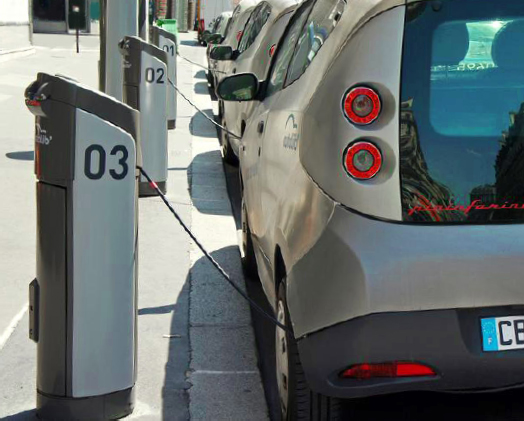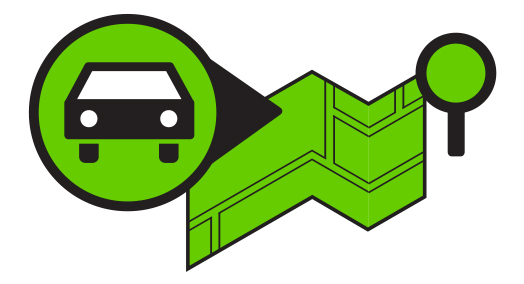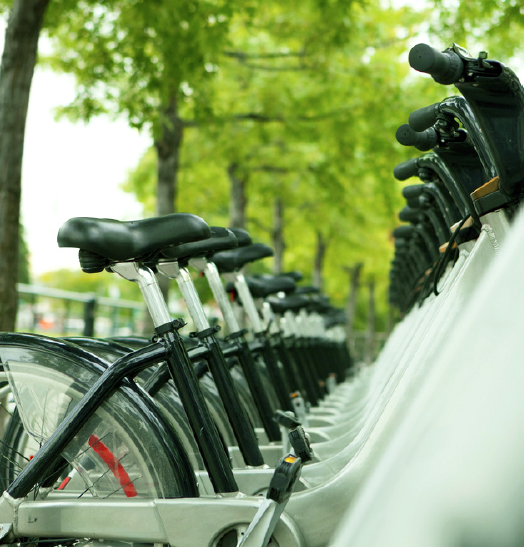
Green Wheels
Science and technology play a crucial role in the combat against climate change, but equally important, if not more so, is changing mindsets and behaviours. Car-sharing and bike-sharing are win-win practices that bring benefits to both users and the environment.
Car-sharing
Car-sharing, also known as car clubs, contributes to sustainable transport by relieving traffic congestion and reducing carbon emissions. It also allows people to enjoy the convenience of a car without having to shoulder the costs and responsibilities that come with owning one. Car-sharing assumes that most people only have occasional need for a vehicle, therefore it lets people rent cars for short periods of time, often by the hour. Car rental organizations can be small ad hoc groups covering only a neighbourhood, or sizeable commercial businesses servicing a whole urban area.
Car-sharing is available in over a thousand cities world-wide, mostly in North America and Europe. Some cities even have electric-car-sharing. In Paris, Autolib’, an all-electric car rental programme launched in 2011, has been going strong with over 100,000 subscribers, 4,000 charging points and a 2,000-car fleet.
Smart phone apps have enabled the rise of ride-sharing platforms. Lyft, a company based in San-Francisco has, since its launch in 2012, facilitated over 1 million rides and expanded to over 10 US cities. The company’s smartphone app matches potential passengers with drivers willing to share their car.

In Hong Kong where people are not used to the idea of sharing vehicles, car-sharing is a relatively new phenomenon. The recent local start-up CarShare provides neighbour-to-neighbour car rental service. Owners who wish to rent out their cars for extra income can register their vehicle on the company’s website. Pre-approved users who wish to rent can then search for cars available in the area and during the period they need.

Bicycle-sharing
Based on a similar model as car-sharing, bike-sharing provides free or affordable use of bicycles in an urban area as an alternative to public or private motorized vehicles, thereby reducing traffic congestion, and noise and air pollution. The system gives people access to bikes for short-distance transportation without having to worry about theft or vandalism, or where to park. When operated well, it is a highly flexible and convenient option. Commuters can easily transfer to metro, bus or car, and tourists can ride from hotel to museum to restaurant, by simply picking up vehicles at bicycle stations and leaving them at station docks in the area and at the time they need, with no strings attached.
Bicycle-sharing systems can be run by non-profits, local community groups, government agencies, or a partnership. Riders can use smart-phone mapping apps to find out information, such as locations of the nearest station and availability of vehicles and parking docks.
There are over 500 bike-sharing programmes around the world, comprising an estimated fleet of over 510,000 bicycles. The practice is most popular in Europe and China. Wuhan and Hangzhou have the world’s largest public bike-share programmes, with around 90,000 and 60,000 bicycles respectively.
Scooter Sharing at CUHK
The Estates Management Office (EMO) of the Chinese University is planning a 'mobility-on-demand' scheme on its campus scooters with the aim of having 100 staff share 40 scooters. There will be six parking spots for the scheme in the first phase, and plans are also underway to install readers on the vehicles so they can be started with a smart card.
Low Emission Zones for Cleaner Air
Many European cities have set up Low Emission Zones (LEZs), geographically defined areas that deter access by older and heavy-duty vehicles that produce harmful emissions. One of the largest LEZs is in London. Introduced in 2008, it restricts entry by vehicles that do not meet Euro emission standards. Cameras are installed around the LEZ to monitor vehicles and check their license plates against the transport authorities’ database of registered vehicles. Those registered before a specific date have to take pollution abatement measures or pay a daily fee to use the LEZ. By 2013, the city’s emissions of PM10 (particles with a diameter of under 10 microns) and PM2.5 have gone down by 15%, while NOx (nitrous oxide emissions) have decreased by 20%, thanks in large part to the LEZs.



